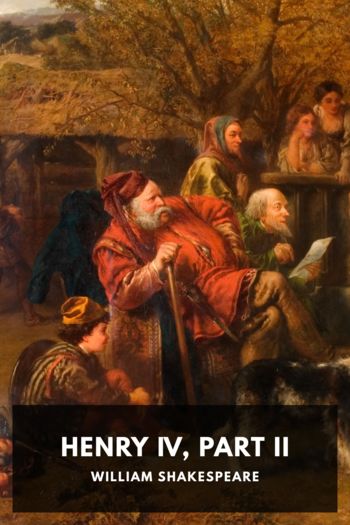Hot Stew by Fiona Mozley (feel good books .TXT) 📗

- Author: Fiona Mozley
Book online «Hot Stew by Fiona Mozley (feel good books .TXT) 📗». Author Fiona Mozley
Lorenzo enters the large, high-ceilinged foyer through rotating glass doors. He’s ushered to the waiting area by a young woman. She takes his photograph on a small digital camera clipped to the back of her computer for this purpose, and soon afterwards hands him a day pass with a fresh image of his face on it. He’s joined in the waiting area by two other men of a similar age. Following the laws of courtesy, the three men sit as far apart from each other as is possible and, after a cursory smile and nod, they each do everything they can to avoid further interaction.
Lorenzo picks up a left-leaning periodical from the coffee table. Someone has written an article about being “Second Generation Working Class.” Lorenzo didn’t realize that was a thing.
Sure, I was brought up in a nice house and went to school in a decent catchment area, but my parents were both raised on a bootstrap and didn’t eat pasta until they were at university.
Lorenzo reads another line.
When chatting to friends about opera or art, I just don’t have the same shorthand, the same inherited cultural cache.
And then,
I’ve never been skiing.
Lorenzo throws the periodical back onto the table. He tries to steady his thoughts. He recites in his head some lines from the piece he prepared. They might not even ask him to perform it. The thought makes him feel both better and worse.
He is summoned to the audition room last. The other two contenders were either shown out of the building through a different exit after their auditions or else they’ve been murdered and chopped up and flushed down a toilet, because Lorenzo doesn’t see them again. He’s led upstairs into a room with a wooden floor and tall windows along one side. There are mirrors along the wall facing the windows. The room has the look of a dance studio.
He is greeted by a lanky man with thinning gray hair, wearing a black, merino-wool jumper.
“Lorenzo?” The man holds out a hand.
“Hi. Yes,” says Lorenzo. He meets the man’s hand and shakes it. The man doesn’t follow with his own name. He must have forgotten that particular rule of social engagement.
“Great, let’s get going,” says the man. He turns away and goes to sit down behind a table, where a woman and another man are already sitting.
Lorenzo remains standing in the middle of the room. He bounces on his toes a couple of times and wonders if he should have done some of his old drama-school warm-ups. Probably. It’s too late now.
“What do you know about the role?” the lanky man asks.
“Very little,” Lorenzo replies. “I knew a little bit about the role I was put forward for, but I know almost nothing about this one.”
“Sure, yeah, that’s fine. We didn’t expect you to know anything. It’s all been hush hush.”
The man picks up a sheet of paper and leans across the table to hand it to Lorenzo. Lorenzo walks forward to take it.
“Take a seat,” says the woman.
“Oh yeah, take a seat,” says the man. “Sorry. Where are my manners?”
Lorenzo sits down, holding the sheet of paper.
“So yeah. Huge, huge, sweeping fantasy drama,” says the man. “Loads of episodes.”
“We hope,” interjects the woman.
“We hope,” says the man. “We hope loads of episodes, and filming mainly here in the UK.”
“In the north,” says the woman.
“Yeah, in the north.” The man puts on a bad Yorkshire accent: “Up North! There’s a great little studio there and lots of beautiful, gorgeous rugged landscape, which is just what we need. Hills and cliffs and waterfalls, and lots of moody black clouds. That sort of vibe. And, hopefully, other locations around the world. Nice, exotic places. You okay with that?”
“Sure,” says Lorenzo. “Sounds fantastic.”
He’s beginning to feel more optimistic about his foray into television work. They’re speaking to him as if trying to sell the part to him.
The man continues: “The role itself is really fun. You know, it’s the kind of role the right actor could really make a lot of. There’s a lot of creativity; a lot of light and shade.”
“Great writing as well,” says the woman.
“Yes,” agrees the lanky man. “Great writing. We’ve got some real talent on board.”
“Well, that’s always a good sign,” says Lorenzo. He doesn’t want to appear to have nothing interesting to say. “Good writing’s often the most important thing, isn’t it? Good writing can improve an average performance, but a good performance can’t mask average writing.”
“Right, yeah,” says the man. “I’d never thought of it in that way.”
“Actually I disagree totally with that statement,” says the woman. “In fact, I couldn’t disagree more. I think that is completely wrong.”
“Um,” says Lorenzo, weakly. It was such a strong response, Lorenzo wonders for a moment if she’s testing him. It had been an idle comment. He isn’t sure whether or not even he agrees with what he just said.
The woman doesn’t seem to require a reply, thankfully, but also she doesn’t seem to be joking. The lanky man continues as if he hasn’t heard what the woman said. The third panelist—the other man—has spent the whole conversation staring at a piece of paper on the table.
“So you’d be a pimp,” says the lanky man, bringing the conversation back to the casting.
“Right,” says Lorenzo.
“But a really fun pimp,” says the lanky man. “You know, a really exotic one. The feel we want to go for is of a kind of happy-go-lucky, cheeky chappy, who sells things here and there and who’s done this and that with his life and been around the block a bit, but who’s now found himself at the head of a really luxurious high-end brothel in the kind of economic and political center of this world.





Comments (0)